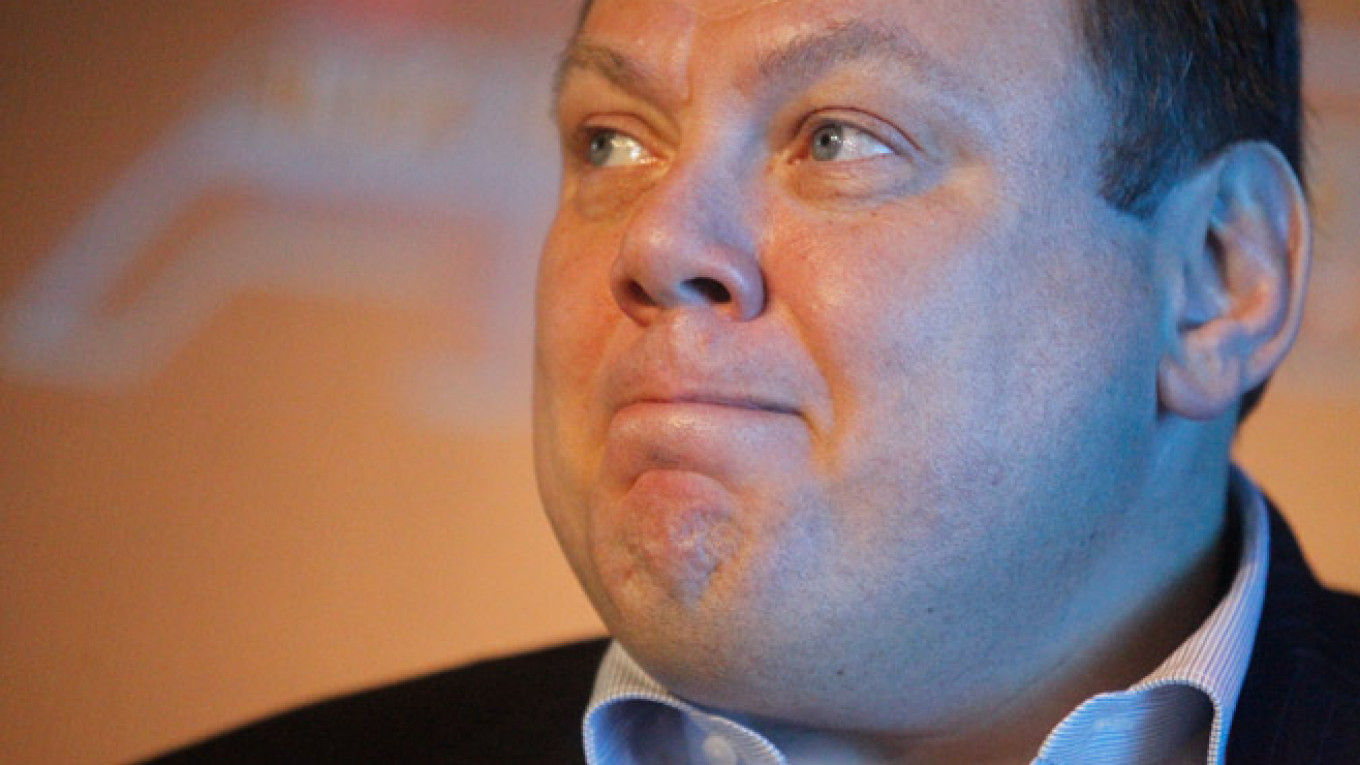LONDON — Britain ordered Russian billionaire Mikhail Fridman to sell his North Sea gas fields within six months, an intervention that ratchets up the pressure on one of Russia's most influential tycoons two weeks before a British election.
Upping the ante in a standoff that some Russian businessmen say shows their capital is no longer welcome in the West, Britain's energy minister told Fridman's investment vehicle that its North Sea licenses would be revoked unless they were sold.
Britain's first such order in the sector follows LetterOne's acquisition of the fields last month as part of a 5.1 billion euro takeover of RWE's DEA oil unit. Prime Minister David Cameron opposed the purchase of the British fields.
Energy Minister Ed Davey "proposes to revoke DEA UK's North Sea petroleum licenses unless LetterOne arranges for a further change of control of the DEA UK gas fields in the North Sea," the ministry said in a statement.
The ministry, which said the decision was made after assessing cross-government views, said Davey had given LetterOne six months to sell the assets.
LetterOne declined to comment.
After a showdown with President Vladimir Putin over Ukraine, the prospect of a Russian tycoon buying British energy assets is politically unpalatable, especially so close to the election.
Britain, which styles itself as a champion of free markets with one of the world's most open economies, rarely intervenes in such cases but in a sign of the gravity of the British concerns, the deal was discussed by Cameron.
A source close to the situation said last month that Cameron had opposed the purchase of the British fields.
Russian Money
The British stance reflects deep unease in London about Putin's actions in Ukraine, where more than 6,000 people have been killed in fighting between government forces and pro-Russian separatists. Moscow denies backing the rebels.
Government sources previously said Britain's decision had been influenced by a case in 2010, when it had to shut down the North Sea Rhum gas field because of sanctions imposed on its Iranian co-owner.
A British source close to the situation said the government had no reason to doubt LetterOne would find a suitable buyer within the given timeframe.
"The government will have a role to play [in finding a buyer]," said the source who spoke on condition of anonymity.
"The entire thing has been about protecting assets of national significance," the source said.
The fields Fridman has purchased produce 3 to 5 percent of Britain's gas output.
Britain's North Sea is in dire need of fresh investment as traditional large oil companies such as BP and Shell have started withdrawing from the mature basin that is getting more and more costly to find new oil and gas in.
Ukrainian-born Fridman, who made a fortune in Russia after the Soviet Union collapsed in 1991, has tried to allay British worries by grouping the assets at the center of the dispute in a Dutch foundation, a step he says would insulate them from any possible sanctions.
Fridman, 50, is ranked by Forbes as the world's 68th richest person with a fortune of $14.6 billion, while his business partner German Khan, 53, is ranked 133rd with $9.5 billion.
A Message from The Moscow Times:
Dear readers,
We are facing unprecedented challenges. Russia's Prosecutor General's Office has designated The Moscow Times as an "undesirable" organization, criminalizing our work and putting our staff at risk of prosecution. This follows our earlier unjust labeling as a "foreign agent."
These actions are direct attempts to silence independent journalism in Russia. The authorities claim our work "discredits the decisions of the Russian leadership." We see things differently: we strive to provide accurate, unbiased reporting on Russia.
We, the journalists of The Moscow Times, refuse to be silenced. But to continue our work, we need your help.
Your support, no matter how small, makes a world of difference. If you can, please support us monthly starting from just $2. It's quick to set up, and every contribution makes a significant impact.
By supporting The Moscow Times, you're defending open, independent journalism in the face of repression. Thank you for standing with us.
Remind me later.


